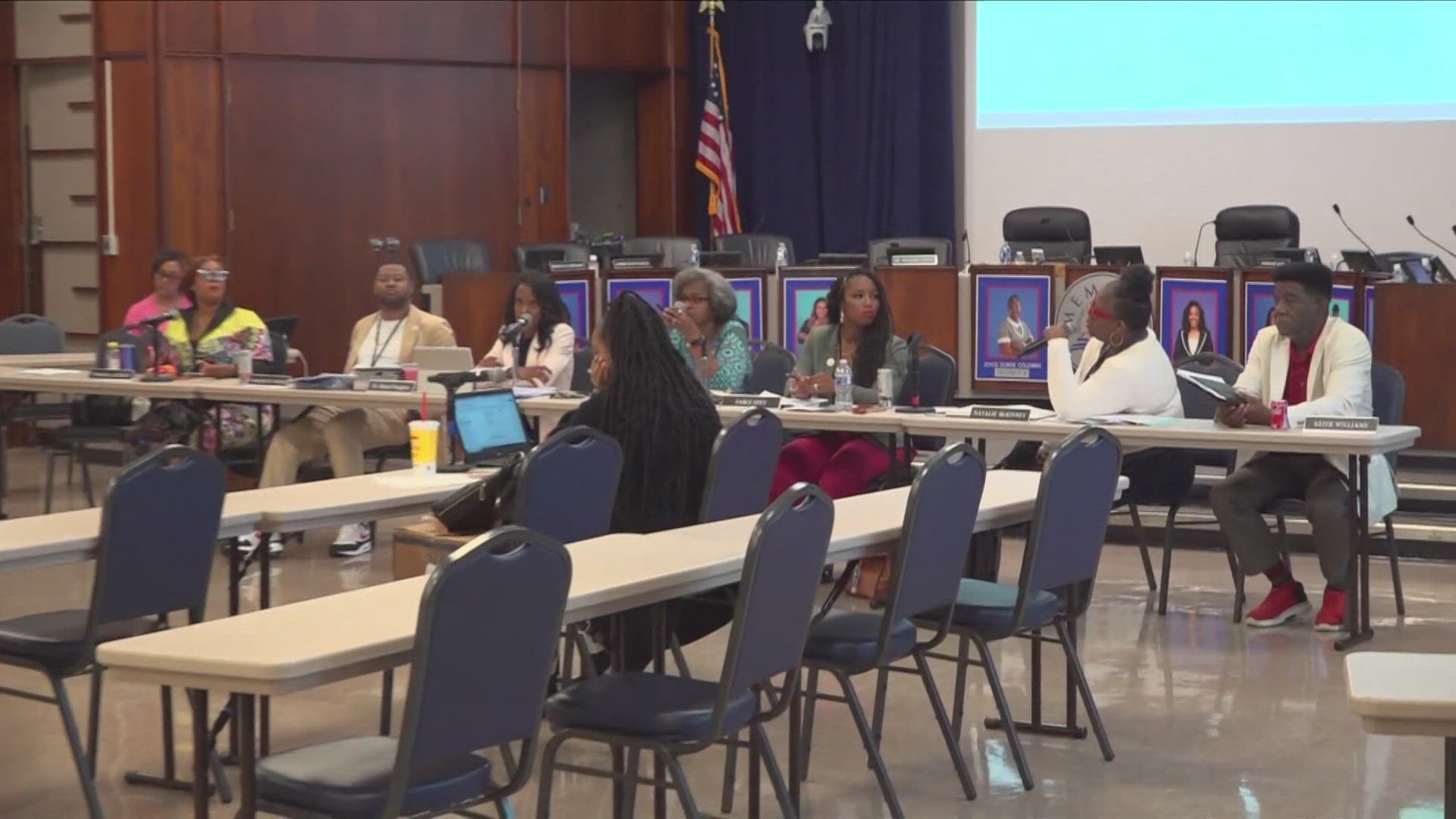NASHVILLE, Tenn. — Gov. Bill Lee and Education Commissioner Penny Schwinn unveiled a sweeping new rewrite of how the state funds its multibillion-dollar K-12 education system on Thursday, saying it provides for more money per student and valuable services.
For months, Lee and Schwinn have highlighted the many meetings and town halls held across the state dedicated to collecting feedback from educators and families on how to improve the state's decades-old funding matrix that serves nearly 1 million Tennessean students.
During his budget unveiling, the governor promised $750 million more annually to fund the new formula starting in 2023-2024. The money would first be available for other one-time education uses in the upcoming budget year.
But while many Tennessee education experts have criticized the current system as complicated and outdated, there has also been concern over rushing to replace it with another system that could create its own set of issues.
The proposal faces additional headwinds during an election year, when lawmakers are extra wary about votes that could be controversial in their districts, and they're eager not to drag out legislative work so they can get out on the campaign trail.
According to the legislation introduced Thursday, schools would receive a base dollar amount of $6,860 per student with options to increase that amount depending on the student's location and needs under a matrix known as "unique learning needs." For example, schools with students with dyslexia or a disability would receive more funding — as well as those students in small districts or where poverty is concentrated, calculated using an algorithm outlined in the legislation.
Schwinn told reporters that schools could receive as much as $15,600 per student depending on how many "unique learning needs" a student meets.
Schools will also have the option to receive more state dollars through "student-generated outcome" incentives, which will reward high reading scores or demonstrations that students have strong college and career readiness. The plan would allocate $100 million for such incentives. Stipends also would be provided to fast-growing schools.
Schwinn said another $125 million in the upcoming budget would be added to boost teacher salaries. And through the proposed formula, the minimum salary, which was $35,000 in January 2019, would increase to $46,000 by 2026.
School districts that receive low marks could be asked to defend themselves before the General Assembly and risk facing corrective actions handed down by lawmakers or be appointed an inspector general to oversee the school's programming and spending.
Lee and Schwinn say the goal is to have the GOP-dominant General Assembly finalize the overhaul of the funding formula by the end of the legislative session. If approved, implementation would begin in the 2023-2024 school year. However, many lawmakers have not yet had a chance to examine the new proposal and it's unclear how many are willing to take on the massive task before adjourning.
Scrutiny of Tennessee's education system is at an all time high as lawmakers and families have called for more oversight of what concepts and discussions are being taught inside classrooms. Meanwhile, there's also been a push to expand charter schools throughout the state.
Just hours before Lee's administration dropped the school funding plan, Tennessee's highest court was once again listening to arguments over the legality of the Republican governor's school voucher law that he signed off on in 2019. That plan, which applies to only Nashville and Memphis' Shelby County, remains blocked in court.
An overview of the PowerPoint presentation can be found HERE.
Find more about the student-funding formula HERE.
--------------------------------
From the Tennessee Department of Education:
For the first time in over 30 years, the TISA will update the way Tennessee invests in public education by moving to a student-based funding formula, including the following components:
$6.6 billion for base funding for every public school student.
$1.8 billion in additional funding to be allocated based on weights to address specific student needs.
$376 million in direct funding for students to receive additional funding allocations to support specific programs, like tutoring.
$100 million in outcomes funding to be awarded based on achievement to empower schools to help all students reach their full potential.
-----------------------------------------------------------
Professional Educators of Tennessee executive director issued the following statement:
“We recognize that the current Basic Education Program (BEP) formula does not reflect the actual cost of educating a student in Tennessee. It is also too complex and difficult to explain. We have advocated for modernizing the formula, as well as adding additional funding for years. We appreciate Governor Lee’s willingness to look at this critical issue. We are cautiously optimistic about the new Tennessee Investment in Student Achievement (TISA), understanding there is a lot of work left to do. However, before rushing this funding initiative into law, it’s important to get it right.”
“We look forward to studying this legislative proposal and working with members of the Tennessee General Assembly to get the best funding system possible for all our students, schools, and communities. Like President Ronald Reagan maintained: ‘Trust, but verify.’ More attention and analysis are needed. A change only to the funding system does not guarantee adequate resources or provide students with sufficient opportunities to learn.”
“Together all stakeholders and policymakers must build a broad political consensus for achieving a school funding system that works for all students. A new funding system must improve academic outcomes while addressing systemic inefficiency to maintain and support public schools.”



